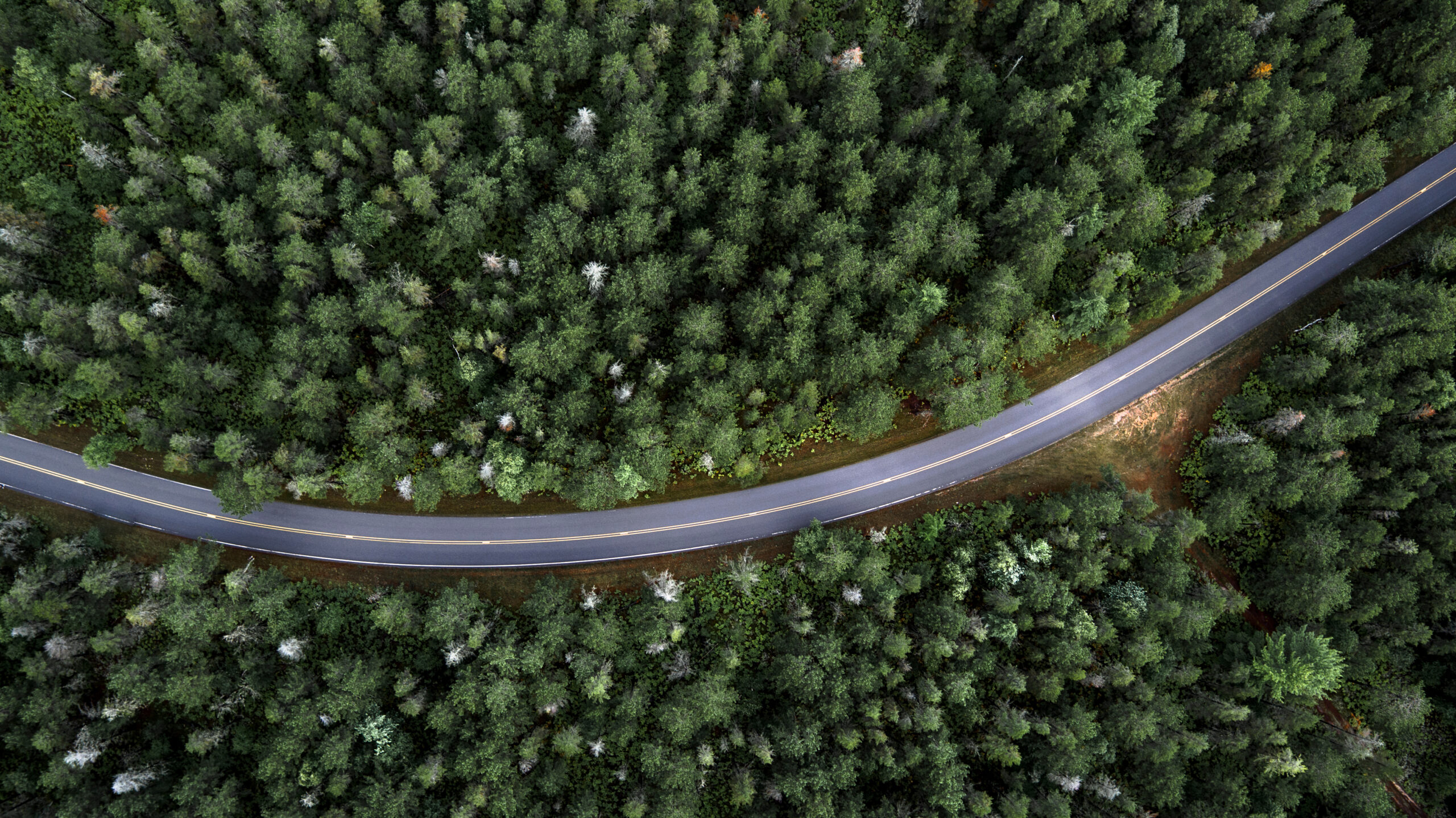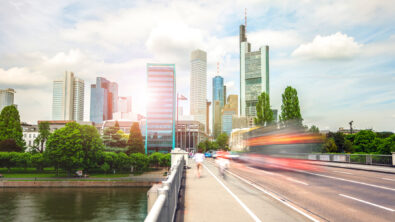A sustainable perspective on agriculture and electrification

Building a sustainable future is not about just building an amazing technology to completely disrupt the status quo in regards to energy use, resource efficiency, or any other metric. It is also about establishing working relationships and sharing knowledge about what works within a business. This is part of why we are constantly inviting out customers to talk about what they are doing in terms of sustainability. A recent discussion came out of Realize Live Americas 2023, where our Head of Sustainability at Siemens Digital Industries – Eryn Devola – sat down with representatives from three very different companies. She shared the stage with Ramon Pereira Bonillia (Head of Community and Communications for GreenForge), Carlo Lacovini (General Manager of Energica Inside), and Jane Poynter (Founder and CEO of Space Perspective).
Beyond sharing Siemens as an industrial partner, each of these companies also share a goal to create sustainable business models for their industries whether it is agriculture, transportation, or aeronautics. And for this group specifically, our greatest help came in the form of digitalization and getting a grasp on understanding their products in the digital world first.
Space Perspective
Fairly unique in the aerospace industry, Space Perspective is first and foremost an environmental tourism business. The goal is to provide as many people as possible the chance to experience what many astronauts feel in their journeys, often called the overview effect, but what Jane Poynter calls the space perspective. It is a realization to the connectedness and responsibility we hold to the planet we live. And doing that carbon neutral is a necessity.
Getting the project off the ground required them to go digital. Rather than sending many iterations of the balloon and capsule design into the upper reaches of the atmosphere and landing them back in the ocean, the team is using simulation technologies to understand the dynamics of the system well in advance. For more information on their mission, check them out online.
GreenForges
Part of the rush for controlled environment agriculture, GreenForges is finding a niche in building their growing environments alongside other facilities like residential buildings. They accomplish this by using wasted ground space – not on the ground floor, but below grade – which also helps mitigate the temperature control requirements of the system. There are many sustainability benefits to growing food closer to population centers, the most commonly understood being reduced transportation emissions, increased nutrition of the products, and reduced waste consumption.
Unfortunately, relying on artificial light for plants to photosynthesize requires lots of electricity for the lights which creates lots of heat that needs to be removed from the closed system. This is where digitalization is helping GreenForges plant crops underground. Sub-soil environments act as a heat sink for many applications and can provide a constant growing environment throughout the year, but it is not an infinite pool to dump heat into. Simulating the environment helps optimize how much energy can go into the system. But this is only scratching the surface of their innovation in creating a more sustainable food system.
Energica
Building something innovative, let alone creating a successful business, around sustainability is not a simple task. The business drivers are there but creating the right product for the market is still an important determiner of success. This is why Energica Motor is another great example on the value of digitalizing to create a sustainable business. When they started their journey to create a luxury electric motorcycle and challenge the traditions of the market there was limited experience in the field – both a hurdle and a benefit. They had to rapidly build competency and scale their processes to build the right product for their customers.
With a lot to prove and even more to uncover in a nascent industry, Energica’s story is something unique. They challenged the steeped tradition of motor sports in the heart of Italian automotive excellence and have come out the other side with a great design and product for their customers, all while staying true to their mission of a sustainable motorcycle.
Digitalization for your next sustainable project
Your next product can emulate the processes and successes of these innovators in sustainable industries by deploying digitalization to your business. Without connected workflows across the enterprise, you might not have ready access to all the information when making the best decisions – whether that is the physical limitations of a production environment, the environmental costs of a material selection, or the reusability of a product to keep it operating as long as possible.
For almost every industry, Siemens has a way to help on your sustainability journey. To learn more about what we are doing and how our customers are accelerating their product plans, check out our website.
Siemens Digital Industries Software helps organizations of all sizes digitally transform using software, hardware and services from the Siemens Xcelerator business platform. Siemens’ software and the comprehensive digital twin enable companies to optimize their design, engineering and manufacturing processes to turn today’s ideas into the sustainable products of the future. From chips to entire systems, from product to process, across all industries. Siemens Digital Industries Software – Accelerating transformation.
For more information on Siemens Digital Industries Software products and services, follow us on LinkedIn, Twitter, Facebook and Instagram.


